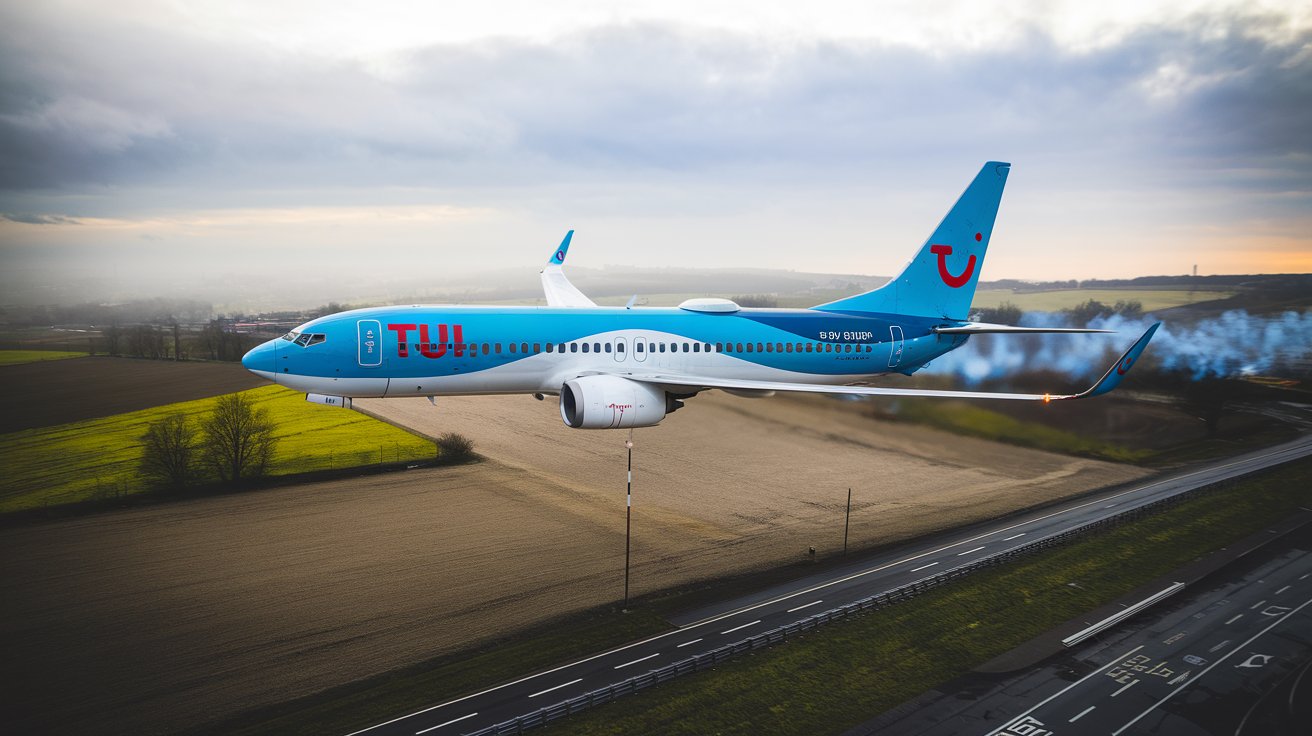TUI Boeing 737: A Serious Incident Above North Lincolnshire
In a recent event that has drawn significant attention, a TUI Boeing 737-800 carrying 187 passengers encountered a "serious incident" during its flight over North Lincolnshire. This incident highlights critical concerns about aviation safety and operational reliability. Below, we dive deep into the details, exploring what happened, the technical challenges, and the implications for passengers and the aviation industry.
Incident Overview
On a routine flight, the TUI Boeing 737-800, a widely used aircraft in commercial aviation, faced a significant issue that disrupted its journey. Preliminary reports indicate that a malfunction in the autothrottle system was the primary culprit. This system is crucial for maintaining optimal engine thrust levels during flight, and its failure can lead to critical challenges for the crew in managing the aircraft's performance.
The fault led to unexpected deviations in the aircraft's thrust, causing it to fly at an altitude far lower than expected over North Lincolnshire. Fortunately, the flight crew managed to stabilize the situation and continued the journey without any injuries to passengers or crew.
The Technical Fault: Autothrottle Failure
Autothrottles play an essential role in modern aircraft by automatically adjusting engine power to maintain desired flight parameters. In this case, the autothrottle malfunctioned, leading to an insufficient thrust setting during a critical phase of the flight. Boeing's 737-800 model, which has been in service for years, has faced scrutiny in the past for similar issues, with multiple airlines reporting "nuisance failures" of the system.
The investigation revealed that the thrust levels were below the required settings for a safe takeoff. This oversight led to the plane's dangerously low altitude above populated areas, raising questions about procedural compliance and pre-flight system checks.
What Could Have Gone Wrong?
Several factors might have contributed to this incident, including:
- Technical Defects: A history of autothrottle issues in similar models suggests a potential design flaw or maintenance oversight.
- Human Error: While modern cockpits rely on automation, pilots are expected to monitor systems closely. Investigators are examining why the crew failed to detect the thrust discrepancy during takeoff.
- Environmental Factors: Weather conditions or other external factors might have exacerbated the situation.
Safety Measures and Immediate Actions
Following the incident, the UK’s Air Accidents Investigation Branch (AAIB) issued a special bulletin to highlight the risks associated with such failures. This bulletin emphasizes the need for stringent pre-flight checks and real-time monitoring of automated systems during critical phases of flight. Additionally, Boeing has been urged to address recurring autothrottle issues in its 737-800 series to prevent similar incidents.
Passenger Experience and Industry Implications
For the passengers aboard, the incident was likely a terrifying experience, even though they were unaware of the technical specifics at the time. Such events underscore the importance of maintaining trust in aviation safety standards. TUI has expressed its commitment to cooperating fully with investigators and ensuring the highest levels of safety for its customers.
On an industry level, the incident reignites discussions about the reliability of aging aircraft models and the balance between automation and human oversight. Airlines operating the Boeing 737-800 series are now under increased pressure to inspect their fleets thoroughly.
Lessons Learned and the Path Forward
This incident serves as a critical reminder of the complexities of modern aviation and the importance of rigorous safety protocols. To prevent future occurrences, stakeholders must focus on:
- Enhanced Training: Ensuring pilots are adequately trained to recognize and respond to automation failures.
- Proactive Maintenance: Airlines must invest in regular maintenance to address recurring issues in older aircraft models.
- Technology Upgrades: Boeing and other manufacturers should consider updates to critical systems like autothrottles to enhance reliability.

.jpeg)


